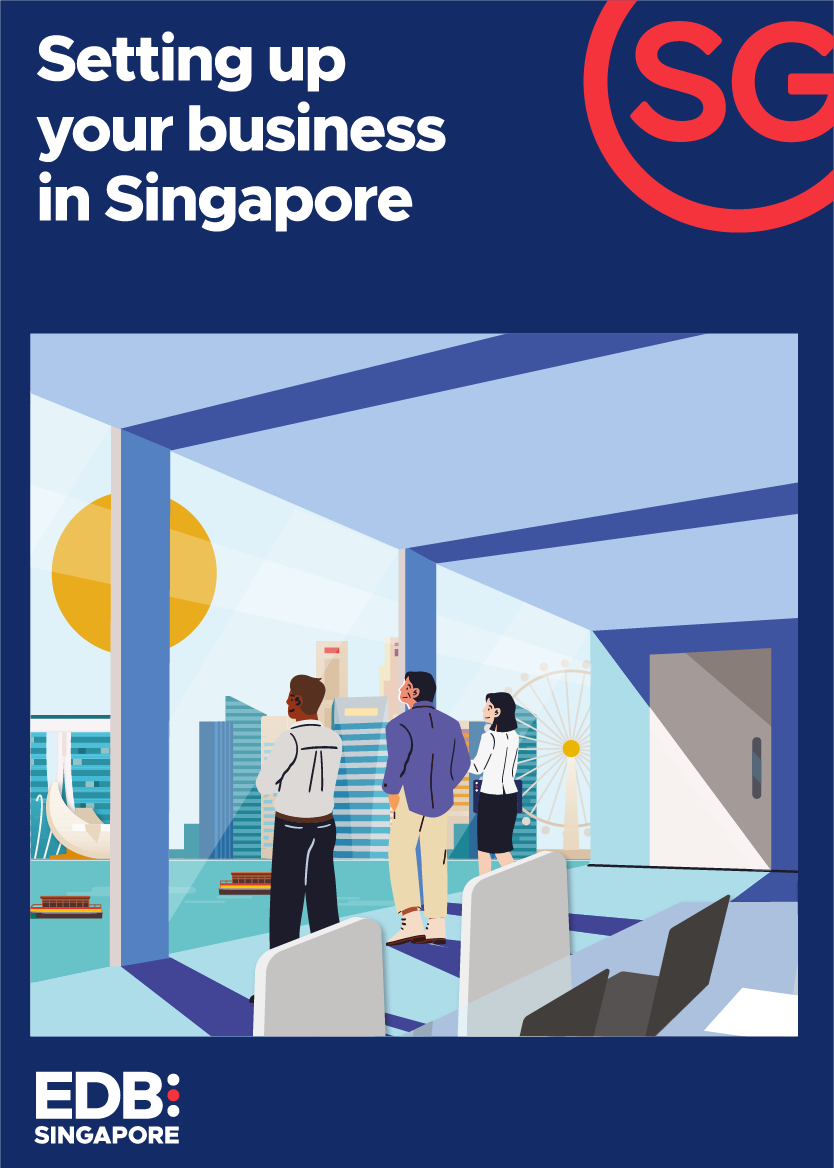Interested to find out how you can jumpstart your company's journey in Singapore?
Check out this guide.
Dr Heinz-Jürgen Bertram, chief of international supplier of scents and flavours Symrise advises companies to take a chance on Asia, a region he believes is the growth engine for the global aroma industry.

In Singapore, about 700 staff, including engineers, perfumers, flavourists and chemists are employed by the global flavour and scents producer Symrise from Germany. In order to expand its involvement in the Asian market, the company added an innovation and technology centre to its location a few years ago – accommodated in the ultramodern building that houses the company’s head office.
In the following interview with the CEO of Symrise AG, Dr Heinz-Jürgen Bertram, recounts his experiences in the growth region.
How important is the Asia-Pacific area including the Association of Southeast Asian Nations – or ASEAN – for Symrise?
Asia is of pivotal significance for a global enterprise such as Symrise. After all, more than half of the world’s population lives in this part of the world. The Asia-Pacific, where more than 1,500 of the group’s total of nearly 10,000 staff were employed in 2019, generated around 20 per cent of our combined turnover of US$4.09 billion (S$5.46 billion). And this ratio will certainly increase in the years to come; at present, the development of many national economies has much going for them, including several members of the international ASEAN organisation such as Indonesia and Vietnam.
In addition, from a logistical point of view, this association of states is conveniently located between the two larger markets of China and India − ASEAN alone accounts for more than 600 million people. As this huge region offers us attractive perspectives, we will continue to heavily invest in it.
What role does Singapore play in this scenario?
Generally, Singapore is ideal as a start and control centre for expanding into the Asian economic zone.
Geographically, the country forms the heart of the ASEAN region and with its international airport, ultra-modern harbour and first-class infrastructure, it is optimally endowed from a logistical point of view. As a consequence, it is eminently suitable as a hub.
Furthermore, it has a legal system that largely corresponds to Germany’s, such as safeguarding intellectual property rights and protecting patents. Then, there is the fact that the Singapore government is exemplary in location promotion, making it easier for foreign companies like ours to access the market thanks to numerous measures. In addition, English is spoken everywhere, which is advantageous and should not be underestimated.

Check out this guide.
How is Symrise positioned in Singapore?
We manage our entire Asian business from Singapore. Not only are our production facilities located here, but we also conduct in-depth research and development in Singapore. That is why we opened a flavour innovation and technology centre for the Asia-Pacific region in 2017. By establishing a regional centre in Singapore, we intend to raise regional and local food manufacturers’ potential and promote Singapore’s vision of becoming Asia’s hub for regional foodstuffs and nutrition.
The centre consists of several facilities that have been designed in accordance with Symrise’s R&D strategy, the core of which is to interlink megatrends, consumer needs, customer requirements, sustainability, innovation and cost efficiency. Taking into account that Asian consumers’ taste in future will be the growth engine for the global aroma industry, Symrise is the first major corporation to bundle its global sensorial and consumer research functions and teams in Asia.
Will you increase the number of employees?
Definitely. The Human Resources aspect also favours Singapore and we employ many skilled and very highly qualified people. It is beneficial for us that regionally speaking, Singapore has a much higher than average standard of education.
Admittedly, salary levels are almost comparable to Germany, but this also provides us with the environment we need so as to advance our business quickly. Or put another way, when recruiting talent, low staff costs are not as crucial for us as having excellent education, experience and expertise when it comes to productivity- all this can be found in Singapore.
To finish, what would you recommend to medium-sized companies wanting to start a second mainstay in Asia as you have?
First of all, for reasons already mentioned, I would definitely recommend Singapore as a springboard for expansion. Secondly, I would strongly advise them to bring a whole lot of patience! They should be prepared to make concessions for three, four, or maybe even five years. Expecting a quick buck in Asia is ill considered, in my opinion. It just doesn’t happen that way. Based on my experience, it is patience that leads to success.
The perspectives are certainly promising.
Asia will continue its economic growth and play an important role in the long term. I think any company would be well-advised not to see Asia as competition, but more as a chance − and to make use of the opportunities that exist there and that will emerge in the future.
That’s certainly what we want to do.
This article was first published by German newspaper FAZ in partnership with EDB.